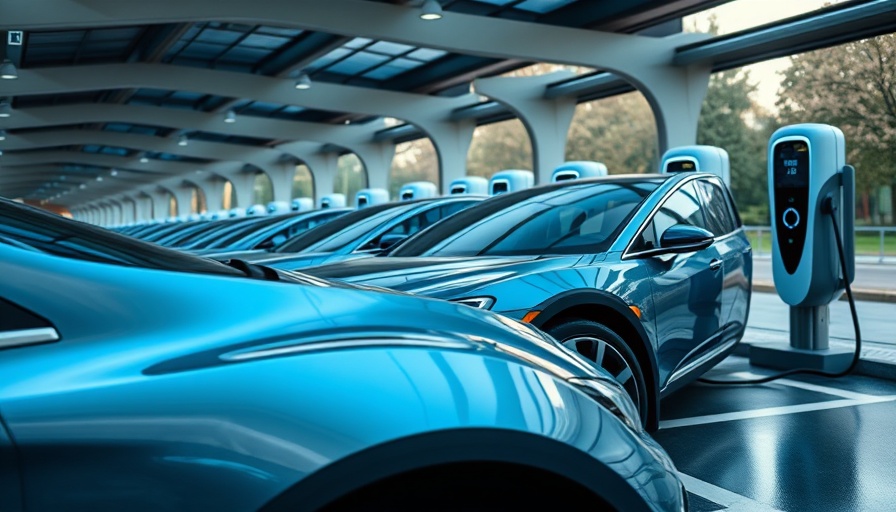
EV Satisfaction Rebounds Amid Uncertainties
In 2025, electric vehicle (EV) owners are expressing improved satisfaction, buoyed by a notable growth in market presence and a wider selection of models despite lingering uncertainties about tax incentives and charging infrastructure. According to the J.D. Power 2025 U.S. Electric Vehicle Experience (EVX) Ownership Study, satisfaction among both premium and mass-market battery electric vehicle (BEV) drivers has rebounded after a challenging previous year.
Market Dynamics: Growth and Challenges
As of 2024, BEVs recorded a market share of 9.1%, a rise from 8.4% in 2023, with the proliferation of affordable mass-market models contributing significantly to this growth. Leading the premium segment is the BMW iX, which shines with a satisfaction score of 790 followed closely by the BMW i4 and Rivian R1S. In the mass-market category, the Hyundai IONIQ 6 came out on top with a score of 751, showcasing the trend that mass market EVs are increasingly outperforming their premium counterparts.
The Role of Government Incentives
However, prospects for continued market expansion are tempered by uncertainties surrounding governmental support, particularly the potential reduction of EV tax incentives. The J.D. Power study notes that over half of BEV purchasers have indicated that tax credits were influential in their buying decisions. “The elimination of EV tax incentives has the potential to affect two critical barriers to EV adoption: public charging availability and vehicle pricing,” cautioned Brent Gruber, executive director of the EV practice at J.D. Power. He emphasized that the forthcoming landscape could pose fierce competition as manufacturers introduce new models while struggling to maintain sales growth.
The Importance of Buyer Education
Alongside market dynamics and government policy, another critical factor impacting satisfaction is the education provided to buyers. The study revealed that only 69% of first-time BEV owners received adequate training during their purchasing experience. Data shows a significant knowledge gap; while 46% received education on how specific features operate, a mere 12% learned about the total cost of ownership for their vehicle. This shortfall underscores the need for dealerships to enhance their educational outreach to help buyers navigate the complexities of EV ownership.
Owner Loyalty and Future Implications
Despite these challenges, the commitment of BEV owners to their vehicles remains strong. The survey indicates that 94% of BEV drivers are likely to consider purchasing another electric model for their next vehicle. This underscores the belief that once consumers jump into the EV segment, their satisfaction often leads to retention and loyalty. Manufacturers should leverage this loyalty by ensuring an enriching and simplistic ownership experience.
Final Thoughts: Preparing for the Evolving Market
As the EV market matures, vehicle manufacturers, dealers, and policymakers must collaboratively address the challenges posed by education and economic incentives. By fostering improved knowledge among buyers and maintaining a supportive environment for EV ownership, the industry can enhance the ownership experience and ultimately drive growth in electric vehicle adoption.
If you are involved in the automotive sector, particularly in sales or dealership management, it's essential to stay informed about these trends and the shifting landscape of EV ownership. Now is the time to equip yourselves with strategies that prioritize customer education and adapt to the regulatory changes that are increasingly shaping the automotive future. For more information on financing options for electric vehicles and current market trends, contact our dealership today!
 Add Row
Add Row  Add
Add 




Write A Comment